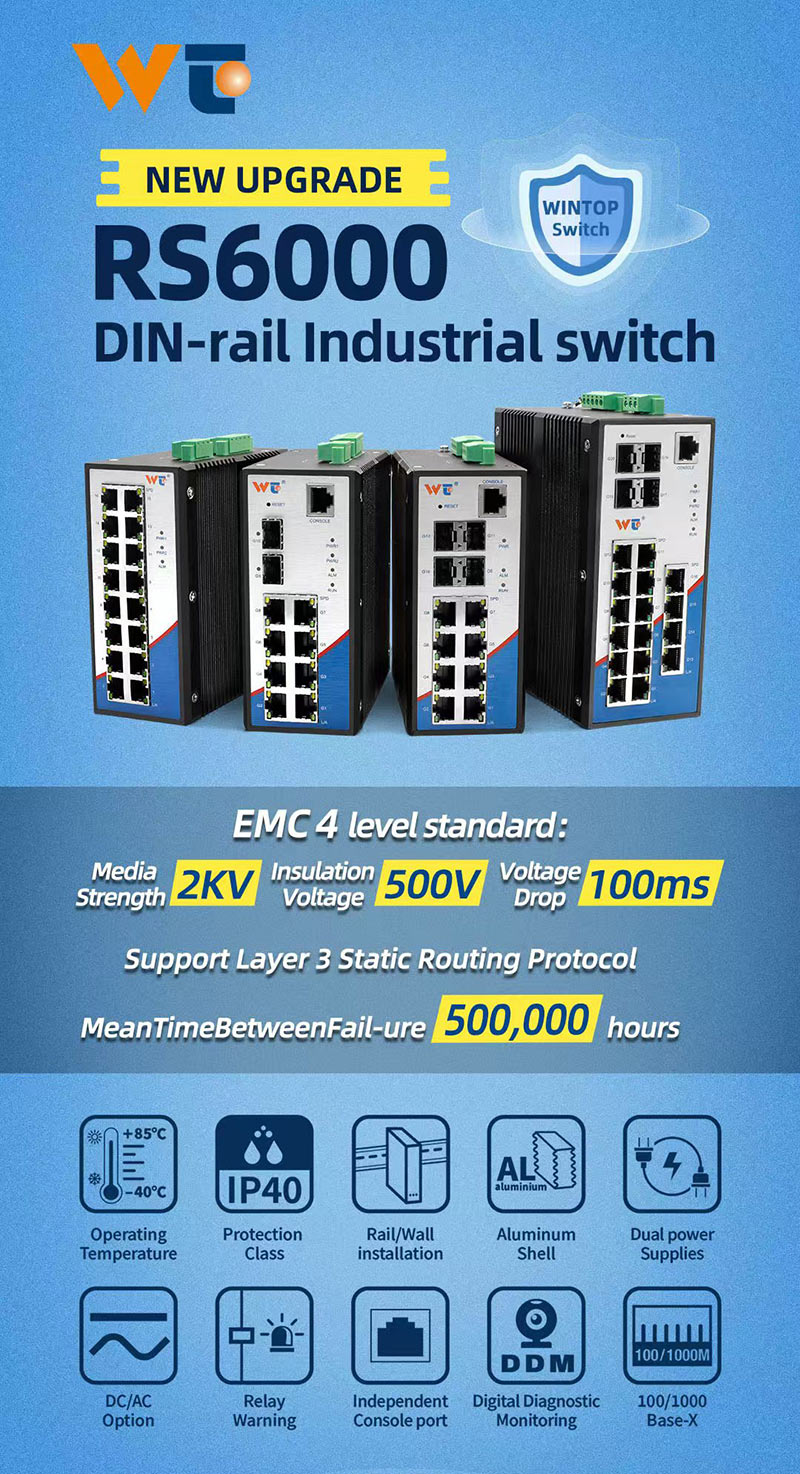Applications of Industrial Ethernet Switches
Industrial Ethernet switches are pivotal in modern industrial settings, providing robust, reliable, and high-speed network solutions crucial for various applications. These devices have become indispensable in facilitating seamless communication and data transfer across diverse sectors. This article delves into the myriad applications of industrial Ethernet switches, highlighting their significance in enhancing operational efficiency and connectivity.
1. Manufacturing and Automation
In the realm of manufacturing and automation, industrial Ethernet switches play a critical role in connecting programmable logic controllers (PLCs), human-machine interfaces (HMIs), and other automated systems. These switches ensure that data is transmitted swiftly and accurately, enabling real-time monitoring and control of manufacturing processes. The rugged design of industrial Ethernet switches ensures they can withstand harsh environments, including extreme temperatures, dust, and vibrations commonly found in manufacturing facilities.
Key Benefits:
- Real-time Data Transfer: Enables precise control and monitoring of production lines.
- Scalability: Easily integrates with existing systems, allowing for future expansions.
- Reliability: Designed to operate in challenging conditions, minimizing downtime.
2. Transportation Systems
Transportation systems, including railways, subways, and traffic management systems, rely heavily on industrial Ethernet switches to maintain efficient and safe operations. These switches facilitate communication between various components such as sensors, surveillance cameras, and signaling devices. In railway systems, for example, they ensure seamless communication between trains and control centers, enhancing safety and operational efficiency.
Key Benefits:
- Enhanced Safety: Reliable communication reduces the risk of accidents.
- Improved Efficiency: Streamlines operations by ensuring timely data exchange.
- Durability: Capable of enduring environmental stresses such as electromagnetic interference and extreme weather conditions.
3. Energy and Utilities
In the energy sector, industrial Ethernet switches are integral to the operation of power plants, substations, and renewable energy installations. They enable the integration and communication of various control systems, ensuring the efficient distribution and management of energy resources. These switches also support advanced features like redundancy and failover mechanisms, which are crucial for maintaining uninterrupted power supply and preventing outages.
Key Benefits:
- Resilience: Advanced redundancy features prevent network failures.
- High Performance: Supports large volumes of data transmission required for energy management.
- Flexibility: Adapts to the dynamic requirements of energy systems.
4. Oil and Gas Industry
The oil and gas industry operates in some of the most demanding environments, from offshore drilling platforms to remote pipelines. Industrial Ethernet switches are vital for maintaining communication and control systems in these challenging conditions. They support applications such as remote monitoring, real-time data analysis, and automated control of drilling operations, ensuring safety and efficiency.
Key Benefits:
- Robustness: Withstands extreme conditions such as high pressure, temperature, and corrosive environments.
- Real-time Monitoring: Facilitates immediate response to any anomalies or emergencies.
- Security: Incorporates advanced security features to protect sensitive data.
5. Smart Cities
The concept of smart cities relies on interconnected systems to manage urban infrastructure efficiently. Industrial Ethernet switches enable the integration of various applications such as smart lighting, traffic management, surveillance, and public transportation. By providing a reliable and high-speed network, these switches ensure that smart city applications can operate seamlessly, improving the quality of life for urban residents.
Key Benefits:
- Efficiency: Optimizes urban resource management through reliable data communication.
- Scalability: Supports the expansion of smart city applications as needed.
- Interoperability: Ensures different systems and devices can communicate effectively.
Conclusion
Industrial Ethernet switches are the backbone of modern industrial networks, offering unparalleled reliability, speed, and flexibility. Their application spans across various industries, each with unique requirements and challenges. By facilitating real-time communication, ensuring operational efficiency, and enhancing safety, these switches are crucial to the advancement of industrial automation and connectivity. As technology continues to evolve, the role of industrial Ethernet switches will only become more significant, driving innovation and efficiency in industrial operations.
